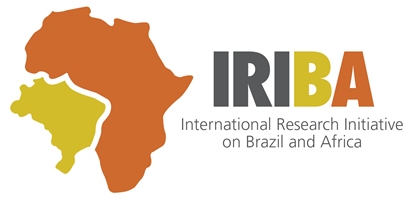The Brazilian model of agricultural development
Today Brazil is one of the major producers of a series of agricultural commodities, including soybeans, sugar, orange juice, maize, cotton, chicken, meat and pigs, with strong participation in a long list of others. The position of Brazilian agriculture as one of the breadbaskets of t
How Brazil has reduced inequality
The sustained decline in Brazilian inequality levels has been of the most striking aspects of its development performance over the last 10 years. In addition to raising an estimated 40 million people out of poverty, the Brazil’s GINI coefficient fell by 12%, from 0.59 in 1995 to 0.52
Tax and the social contract in Brazil
“Brasil” by Roger Schultz (CC BY 2.0) By Marcus Melo, professor of Political Science at the Federal University of Pernambuco, Brazil, and Armando Barrientos, co-research director of IRIBA. Cross-posted from the Tax Justice Network blog. Internationally, debates on tax in Brazil ofte
Event: UK-Brazil social development dialogue
On November 14, IRIBA co-research director Armando Barrientos will be participating in a UK-Brazil dialogue at the LSE, alongside Brazilian Minister for Social Development, Tereza Campello. The event is being organised by the always interesting Favelas@LSE and tickets are available vi
Can the next Brazilian president put the country back on the path to prosperity?
This morning in the Guardian, IRIBA co-research director Ed Amann gives his take on the anti-poverty agenda facing Brazil’s presidential candidates. This is a year of important anniversaries for Brazil. It is 10 years since the launch of the celebrated Bolsa Família anti-poverty
The local impact of Bolsa Família transfers: Methodology Masterclass
Most of the research on Bolsa Família looks at its aggregate impact at a national level, so IRIBA researchers decided to focus instead on what happens to school attendance and the labour supply at the municipal level. This week, Dario Debowicz talked PhD students at the Brooks World P
Is there a new Brazilian development model?
IRIBA’s research directors, Armando Barrientos and Ed Amann draw together the conclusions from the first phase of the project. Cross posted from ELDIS. Brazil’s ascent to prominence on the international economic stage has been a prolonged affair. Perhaps the most curious featur
September 29, 2014
Comments are off
Could Brazil’s approach to vocational training help generate jobs in Africa?
Professor Stephan Klasen is head of the Ibero-America Institute for Economic Research at the University of Göttingen and co-author of the IRIBA working paper on the impact of SENAI vocational training in Brazil and its implications for African countries. This year’s meeting of t
Event: The Brazilian model of agricultural development
Hot on the heels of our seminar at the LSE, we’re continuing to present and discuss our research findings, this time with a focus on agriculture. The event will take place at the University of Brasília on October 7 and will feature: Professor Bernardo Mueller, discussing the tra
Inequality, inclusion & infrastructure: What did we learn?
Daniele Malerba, PhD candidate at the Global Development Institute reports back from the recent IRIBA workshop at the LSE. Last Friday the LSE hosted an IRIBA workshop on some of the work produced in the first round of the project. Research on inequality, social protection and infrast
September 17, 2014
Comments are off
© IRIBA 2014 | All rights reserved I Google+
Hosted by The Brooks World Poverty Institute
